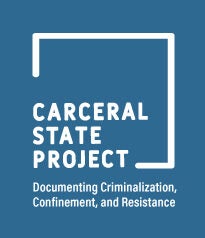Matt Lassiter, “Demise of STRESS, Detroit’s Deadliest Police Squad, Began with Death of Teens,” Detroit Free Press, Sept, 5, 2021
Ricardo Buck and Craig Mitchell were hanging out with friends on the front steps of the North End Family Center, about 5 miles north of downtown Detroit, when a white police officer in the undercover STRESS unitinstigated the encounter that ended their lives on Sept. 17, 1971.
Patrolman Richard Worobec claimed that the two Black youths attacked him and then ran away, so he killed them both with gunshots to the back. Eyewitnesses disputed the Detroit Police Department’s account, and forensic evidence revealed that the shootings could not have happened as the STRESS unit claimed. But police and the prosecutors whitewashed the superficial investigation and exonerated the officer.
The fatal shootings of two unarmed and fleeing Black teenagers, only 15 and 16 years old, led to massive civil rights protests against the DPD’s secretive and deadly STRESS unit, which killed at least 22 people between 1971 and 1973. Black Power and radical left organizations led this grassroots campaign and labeled STRESS (Stop the Robberies, Enjoy Safe Streets) a “murder squad,” charging both the DPD and the Wayne County prosecutor with a conspiracy to cover up its racist and illegal “murders, shootings, beatings, threats, terrorism and false and malicious prosecutions.”
The 50th anniversary of the tragic deaths of Buck and Mitchell provides an opportunity to assess the legacies of the notorious STRESS unit and of the white-controlled DPD during the early 1970s. Intense racial conflict and extraordinary police violence accompanied the city of Detroit’s transition to a majority-Black population, symbolized by the election of Mayor Coleman Young on an anti-STRESS platform in 1973.
The DPD’s systematic brutality in the Black community and frequent use of fatal force against African Americans also galvanized one of the most broad-based racial justice movements of the civil rights era, a local forerunner of the nationwide protests that followed the police murder of George Floyd in 2020.
(The full article is behind a paywall. Read a detailed account of what happened to Ricardo Buck and Craig Mitchell at the Detroit Under Fire website here:
Ricardo Buck and Craig Mitchell
and read about the protest movement on the next page


